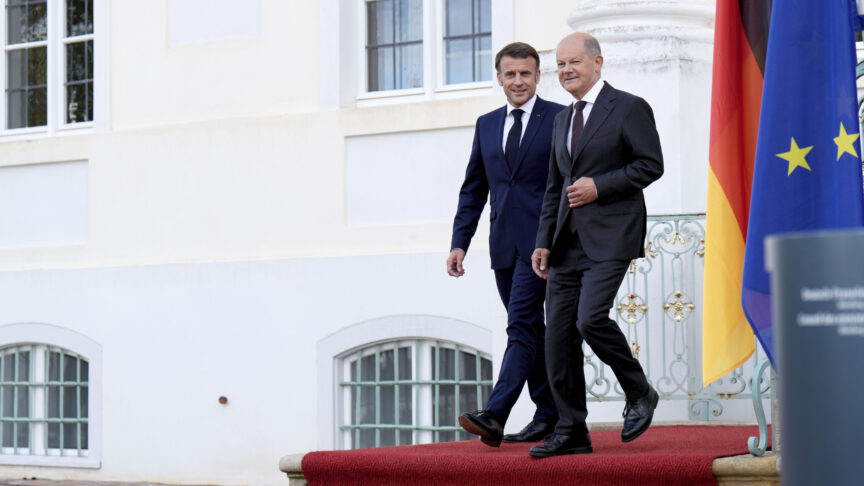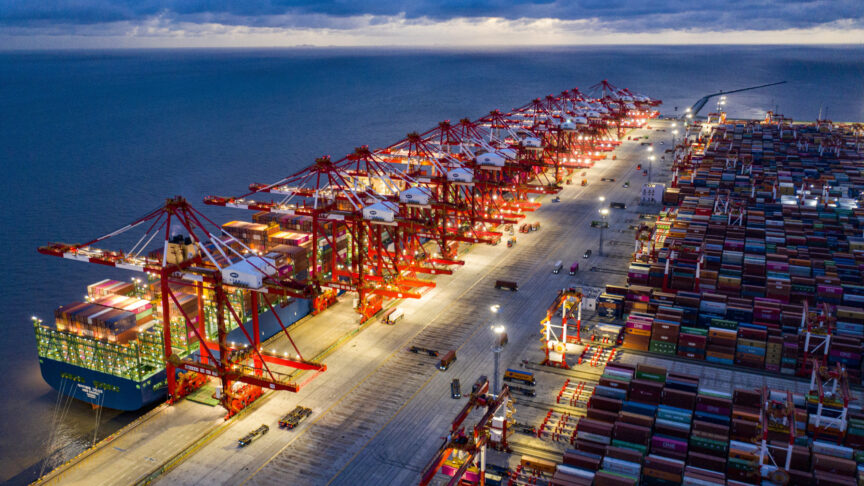CureVac, covid-19, and economic statecraft: Lessons for Europe
Trump’s bid for CureVac should spur Europeans to strengthen their investment screening rules – and signal to China and the US that unwanted takeovers will cost them.
Remember Kuka? Once thought of as a leading German robotics firm, Kuka was taken over by Chinese investors in 2016 – with the company’s know-how and technology promptly transferred out of Europe and into China. This year, as the coronavirus crisis took hold, the German government received a new fright in the form of CureVac: it appears that no less a figure than Donald Trump himself made a technology transfer attempt. The US president reportedly offered a great amount of money to acquire CureVac, a globally important biotech company that may prove critical to finding a vaccine against the coronavirus.
CureVac itself has stated that no formal purchase offer was made, although Germany’s economy, interior, and finance ministers all confirmed the American interest in the business – and they all reacted accordingly too, making clear their anger at the move. The US may not in the end have followed through with something that would have caused a major transatlantic rift. But, although quickly over, the episode illustrates the urgency for Europeans to protect themselves more effectively from potentially deleterious investments in strategic sectors of their economies.
Germans and Europeans must draw three lessons from the CureVac incident.
Firstly, during the pandemic they must not lose sight of the need to build resilience from economic coercion. In contrast to the global financial meltdown of 2008, this new crisis is threatening our economies in times when unilateralism and geo-economic pursuit of narrow national interest are leaders’ chosen governing principles. In the US, the coronavirus is strengthening Trump’s penchant for acting unilaterally. The greater his fears of losing the election this autumn, given that the crisis will fully hit the American economy over the coming months, the more likely he will lash out geo-economically. As Trump has largely excluded military and diplomatic tools in his foreign policy, economic coercion is essentially all that remains at his disposal. And in China, decision-makers recall how they used the last crisis to strategically invest in key European infrastructure, like the Portuguese electricity grid, leveraging these countries’ dependencies to block EU decision-making when it suited Chinese interest. Beijing looks set to take advantage of this crisis, too, and will especially try to fill any vacuum that European investments (or lack thereof) may leave. Especially while the crisis and liquidity problems endure, Europeans must brace for outside investors looking to invest strategically in companies desperately looking for money to survive in the field of key technologies and many other sectors.
Secondly, CureVac underscores the importance of swiftly implementing the EU investment screening regulation. But Europeans should also now amend the framework so that it covers more areas. In the CureVac case, German regulators would have had to rely on the old version of its foreign economics law (AWG) if they had wanted to prohibit US acquisition of the company or exclusive access to its technology for Americans. But the executive order implementing the AWG does not unequivocally cover strategically important companies in the health sector, which is mentioned only in the margins. In an acute health crisis like today’s, the government could probably make a convincing case that access to much-needed vaccines can be protected. But only the EU investment screening regulation will clearly add biotech as a key sector under much closer scrutiny.
Yet this might not go far enough even when fully implemented. The coronavirus crisis shows that the health sector, its innovation potential, and its value chains, are of strategic importance. Europeans could add more parts of the health sector to their investment screening procedure, going beyond biotech. At the same time, they must be cautious not to infringe upon private property rights too extensively. Nationalism on health issues could be highly unethical, and foreign investment is often critical for innovation. The solution could be to identify more parts of the health sector in which foreign takeovers have to be notified to European governments for their review, while avoiding any over-broadening of prohibition criteria. Currently, because healthcare is barely mentioned, it is not clear whether the notification requirement even applies for non-biotech health companies in many EU countries like Germany.
Europeans should impose tougher penalties on companies for failing to comply with the notification requirement.
Thirdly, Europeans should also make their investment screening more effective. They could impose tougher penalties on companies for failing to comply with the notification requirement. Only hefty fines, even personal penalties, for failing to notify the government early on about a possible takeover might ensure that governments can act before it is too late. Europeans should also close an important loophole: as of now, some foreign takeovers can go ahead even though the government is reviewing the case. By the time it intervenes, it is often too late to prevent the transfer of know-how and data.
Having said all this, governments should not overly rely on these measures, which cause the private sector to worry about regulatory overreach and private property infringements. This is why geo-economic counter-measures are so important for the European toolbox. To truly protect strategic sectors of European economies, it is not only regulatory obstacles that are needed. Europeans also need to demonstrate to great powers, from China to the US, that geo-economically motivated takeovers will come at a cost – in negotiations with Europe and, where necessary, in the shape of reciprocal punitive measures.
Ultimately, Germany and Europe got lucky on CureVac, whose main shareholder quickly ruled out accepting any foreign offer. Had Trump got his way, however, potentially life-saving technology developed by Europeans could have gone to America and been lost to Europe. It is time for Europeans to prepare for more situations like this, using a mix of regulatory and defensive measures – even in a time of pandemic.
The European Council on Foreign Relations does not take collective positions. ECFR publications only represent the views of their individual authors.


